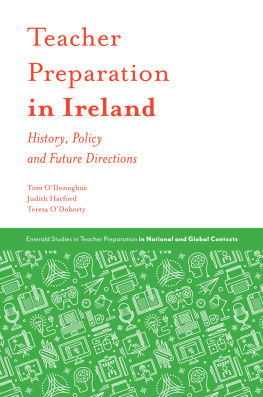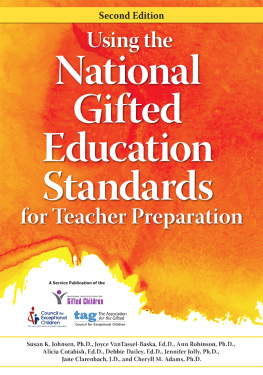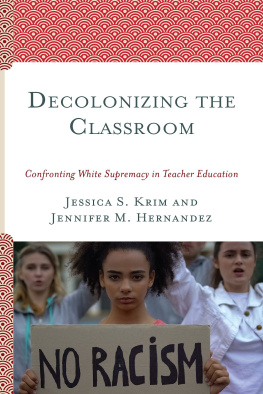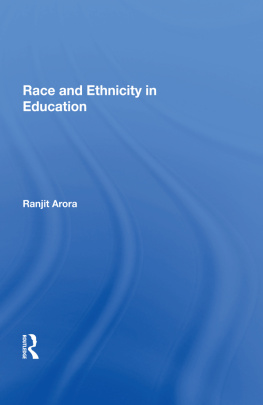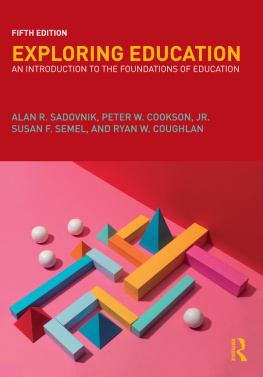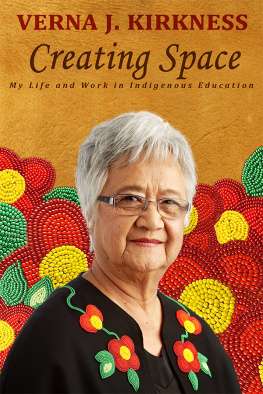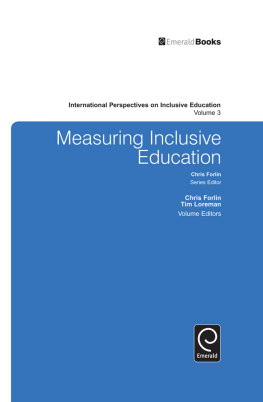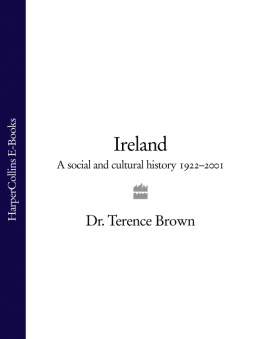Teacher Preparation in Ireland
History, Policy and Future Directions
Teacher Preparation in Ireland
History, Policy and Future Directions
By
Tom ODonoghue
The University of Western Australia, Australia
Judith Harford
University College Dublin, Ireland
Teresa ODoherty
Mary Immaculate College, Limerick, Ireland

United Kingdom North America Japan India Malaysia China
Emerald Publishing Limited
Howard House, Wagon Lane, Bingley BD16 1WA, UK
First edition 2017
Copyright 2017 Emerald Publishing Limited
Reprints and permissions service
Contact:
No part of this book may be reproduced, stored in a retrieval system, transmitted in any form or by any means electronic, mechanical, photocopying, recording or otherwise without either the prior written permission of the publisher or a licence permitting restricted copying issued in the UK by The Copyright Licensing Agency and in the USA by The Copyright Clearance Center. Any opinions expressed in the chapters are those of the authors. Whilst Emerald makes every effort to ensure the quality and accuracy of its content, Emerald makes no representation implied or otherwise, as to the chapters suitability and application and disclaims any warranties, express or implied, to their use.
British Library Cataloguing in Publication Data
A catalogue record for this book is available from the British Library
ISBN: 978-1-78714-512-2 (Print)
ISBN: 978-1-78714-511-5 (Online)
ISBN: 978-1-78714-955-7 (Epub)
We dedicate this book
to
Emeritus Professor ine Hyland
Emeritus Professor John Coolahan
For their Outstanding Contribution to the History of Teacher Education in Ireland
Contents
About the Authors
Tom ODonoghue is Professor of Education in the Graduate School of Education, The University of Western Australia.
Judith Harford is Director of Teacher Education Programmes at the School of Education, University College Dublin, Ireland.
Teresa ODoherty is Dean of Education, at Mary Immaculate College, Limerick, Ireland.
CHAPTER
Introduction
T his opening chapter is an introduction to what is an eight-chapter work on teacher preparation in independent Ireland, the emphasis being on historical developments, recent policy and current directions. Overall, what is presented is a synoptic exposition based on a wide range of secondary sources. Regarding these sources, the most prominent researchers and writers in the field over the last 40 years have been Dr John Coolahan, Emeritus Professor at the National University of Ireland Maynooth, and Dr ine Hyland, Emeritus Professor at University College Cork, and their corpus of work in the field has been widely drawn upon. If it were not for this work, it is difficult to imagine how this book could even have been conceptualised, not to mention completed.
The chapter is in four parts. The first part provides a general overview of teacher preparation in the country from 1922 to the present, drawing in particular on an account written by Coolahan for the Standing Conference on Teacher Education, North and South (ScoTENs), which was formed in 2002, which emerged from discussions between teacher educationists, the Department of Education and Science in the Republic of Ireland, and the Department for Employment and Learning in Northern Ireland, and which aimed at promoting North-South co-operation in teacher education on the island of Ireland as part of the ongoing peace process in Northern Ireland. The second part of the chapter identifies the stimulus for engaging in the project on which this book is based. The third part of the chapter outlines the contribution of the book to the body of literature on the history of education, and particularly on the history of teacher preparation. Finally, the research approach upon which the project underpinning the book was based is detailed. Here also the structure of the book is outlined.
An Overview of the History of Teacher Preparation in Ireland
Prior to the establishment of the independent Irish State in 1922, initial preparation for teaching in primary schools was provided primarily in single-sex, denominational colleges. A two-year training course operated to prepare teachers for well-defined roles.
In newly independent Ireland the promotion of the Irish language took centre stage in education policy as the State saw its revival and the promotion of Gaelic culture as essential for nation building. The great majority of children throughout the land were, until now, receiving their formal education through the medium of English, their mother tongue. This situation reflected the fact that it had been a long time since Irish had been the dominant language in the country and, consequently, the dominant language of education and culture.
In accord with the new policy, it was compulsory to study the Irish language in school prior to being considered for entry to the teacher training colleges.
The course of studies that evolved in the teacher training colleges in the early decades after Ireland gained national independence had three components: a general education in academic subjects, an optional course and education studies. The latter consisted of principles of teaching and practical teaching organised in block-release periods of six weeks each year for every student. This took place in primary schools located close to the colleges.
In 1974, following a request from the government of the day, the universities agreed to award Bachelor in Education (B.Ed.) degrees to primary school teachers after a minimum of three years of study (four years for an honours degree in the case of the colleges associated with Trinity College Dublin). Education as a distinct field of study was the core subject of the degree. Also, a much less regimented approach to pedagogy and to student life both within and outside the colleges than had previously been adopted, began to be issued.
Regarding the preparation of secondary school teachers, a State commission on higher education argued in 1967 that the nations university departments of education should be expanded and developed.
The evolution in the 1970s of the State-established Thomond College of Education in Limerick for the preparation of specialist second-level teachers, initially in physical education, and later in woodwork, metalwork and rural science, provided new degree-level courses in these curriculum areas. and at the Limerick School of Art and Design, which is one of the five constituent schools of Limerick Institute of Technology.
St Catherines College of Education, Sion Hill, Dublin, which until it was closed in 2007, was associated with Trinity College Dublin, prepared teachers of home economics.
By the mid-1970s, regional teacher centres had been established to support continuing professional development for all categories of teachers. From 1992, the State Department of Education, by now renamed the Department of Education and Science (and later to become the Department of Education and Skills), also began to make funding available to individual researchers and research teams through an education research committee.

